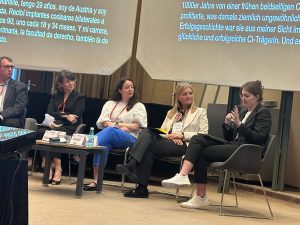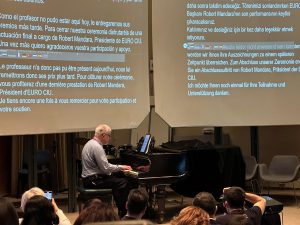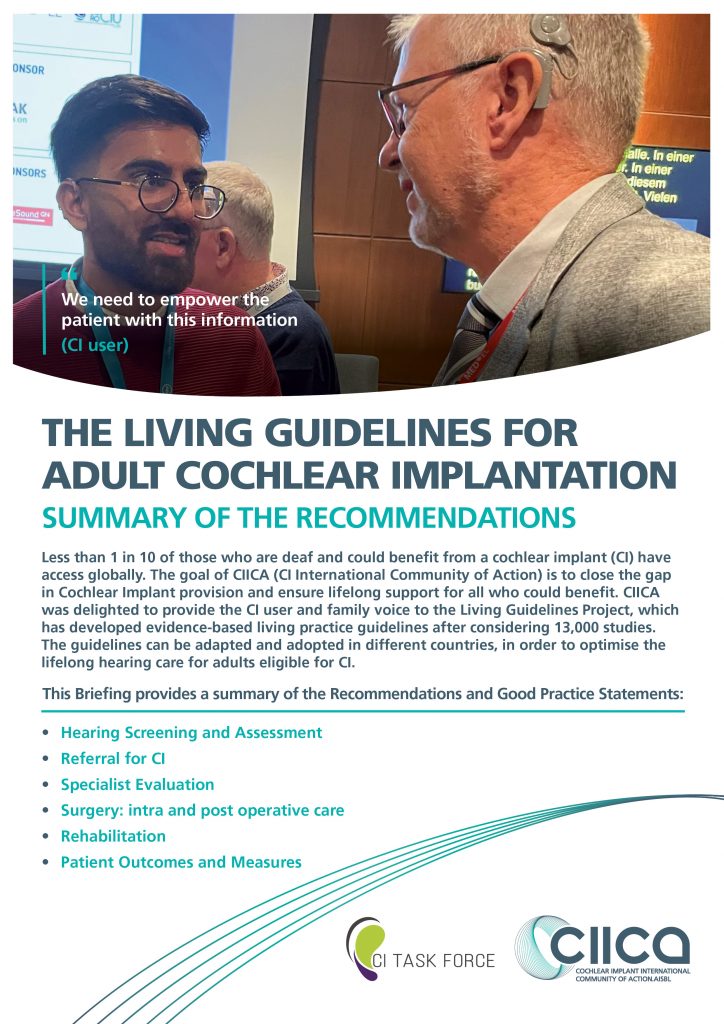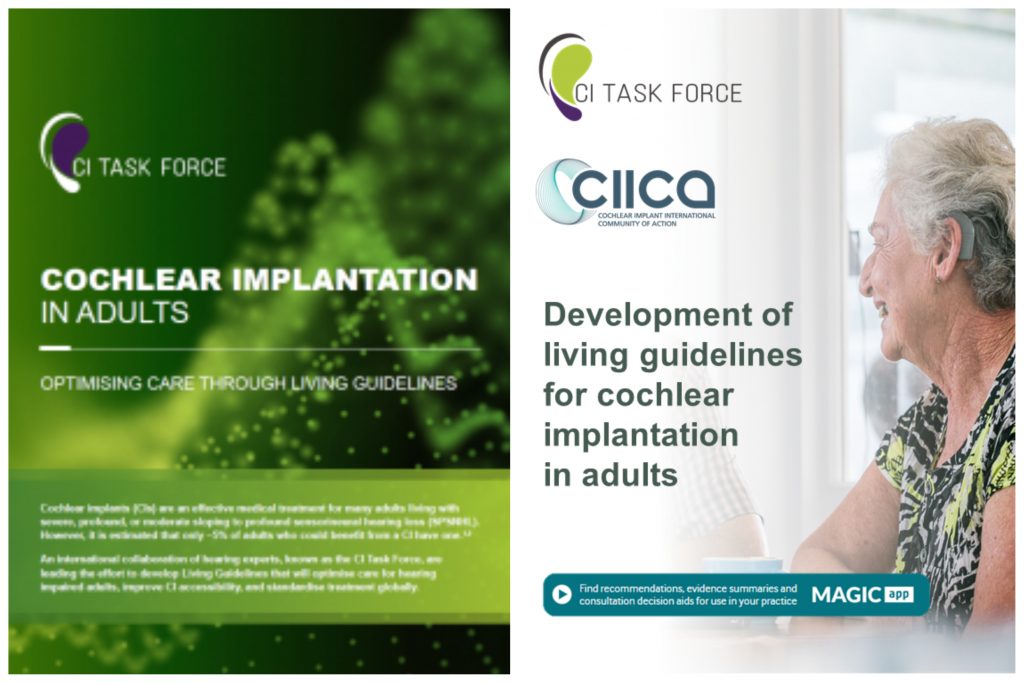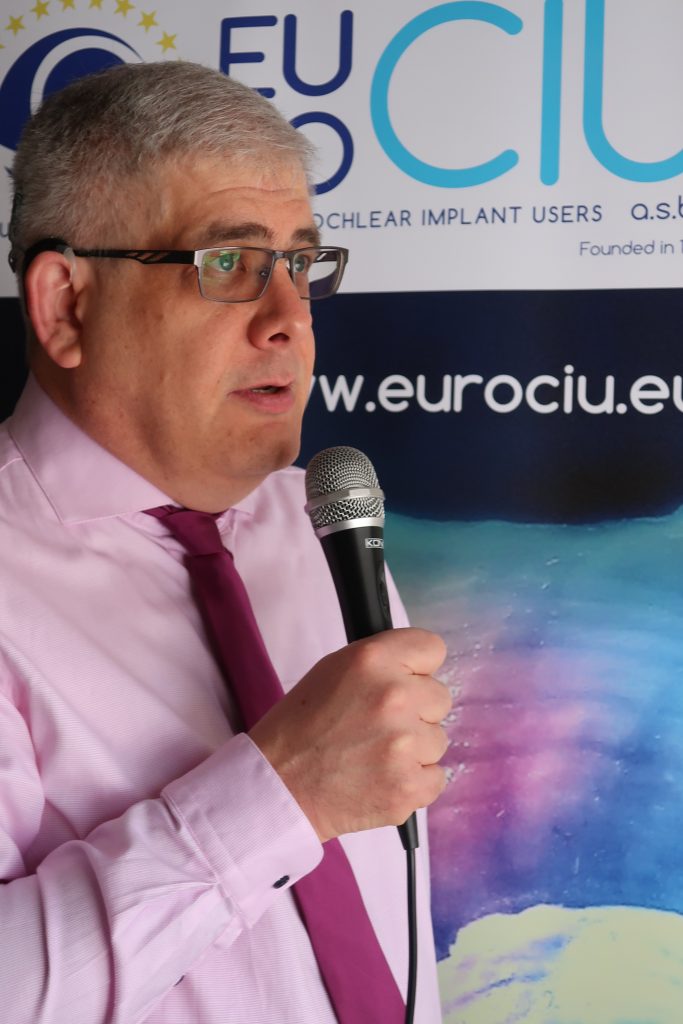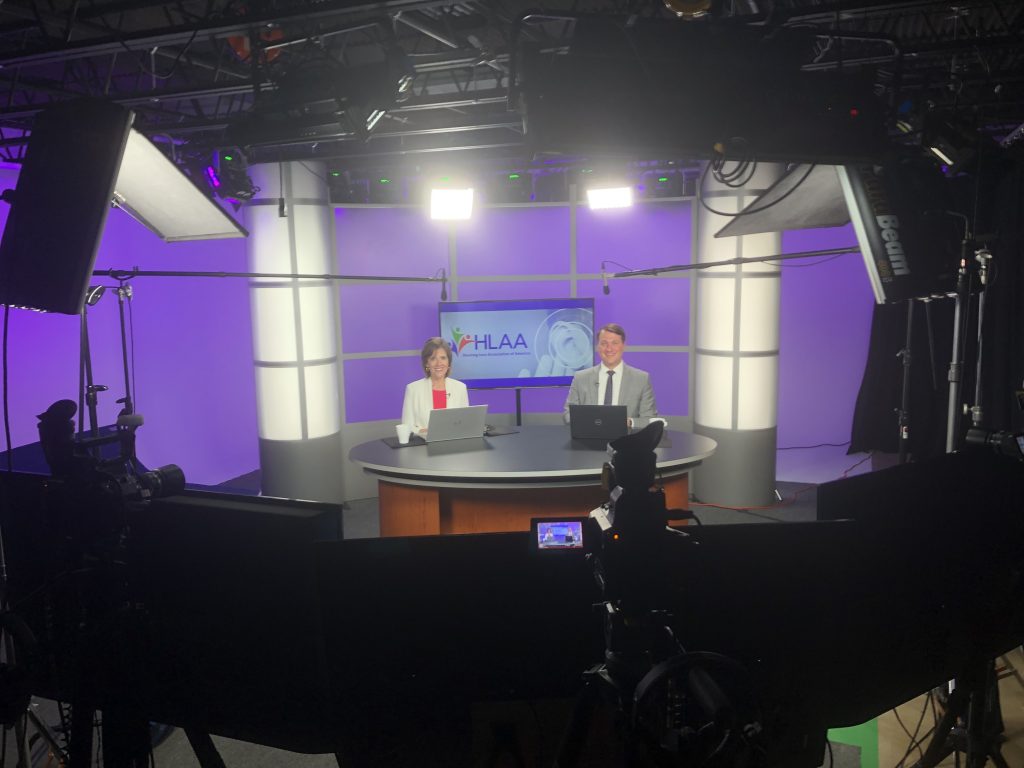CIICA travels to Istanbul – IPAC and EURO-CIU
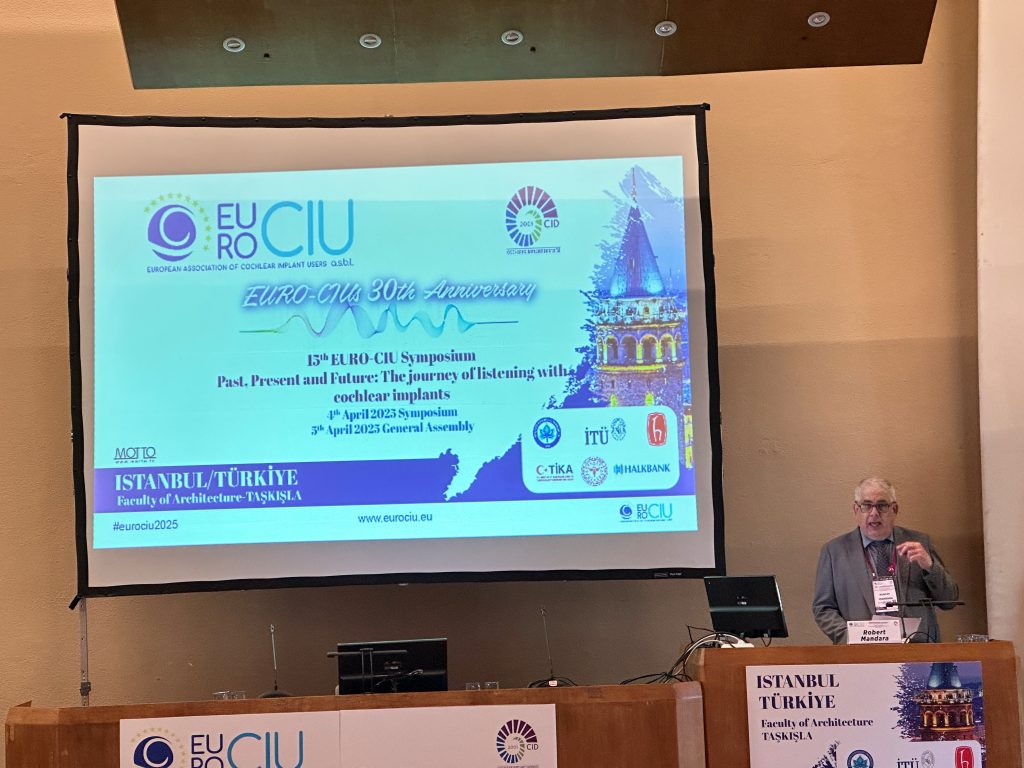
April 4 and 5 2025 saw the International Paediatric Audiology Congress and EURO-CIU 30th Anniversary celebrations in Istanbul. Ms Aylin Ozgur, President of the Cochlear Implant Association and Chair of the 15th EURO-CIU Symposium and Robert Mandara, President of EURO-CIU presented awards for leading professors and contributors to the field of cochlear implants. Robert also demonstrated his love of music by playing the piano for us. Sule Cekic, Professor of Audiology, and Chair of the International Paediatric Audiology Congress welcomed many speakers over the days of the congress on a range of topics.
Tobias Fischer accepted a lifetime award on behalf of Dr Monika Lehnhardt, wife of Professor Lehnhardt, who began EURO-CIU, with a video from Dr Lehnhardt. Later, Tobias, the first child in Germany to receive CI, was voted the new President of EURO-CIU taking over from Robert Mandara.
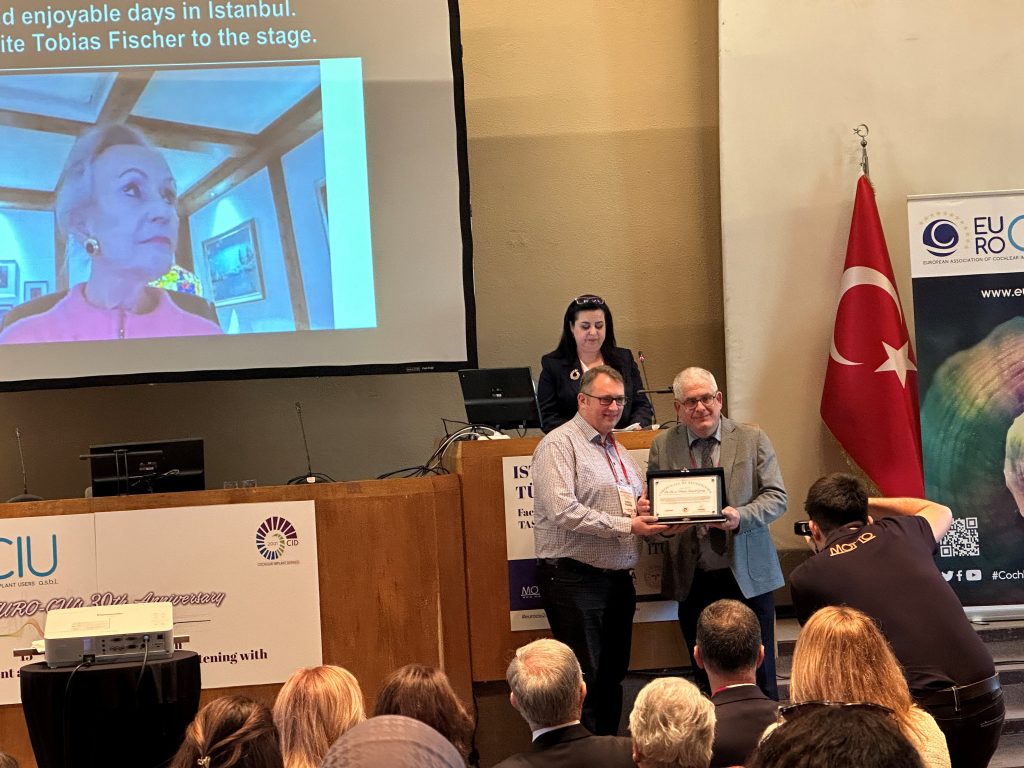
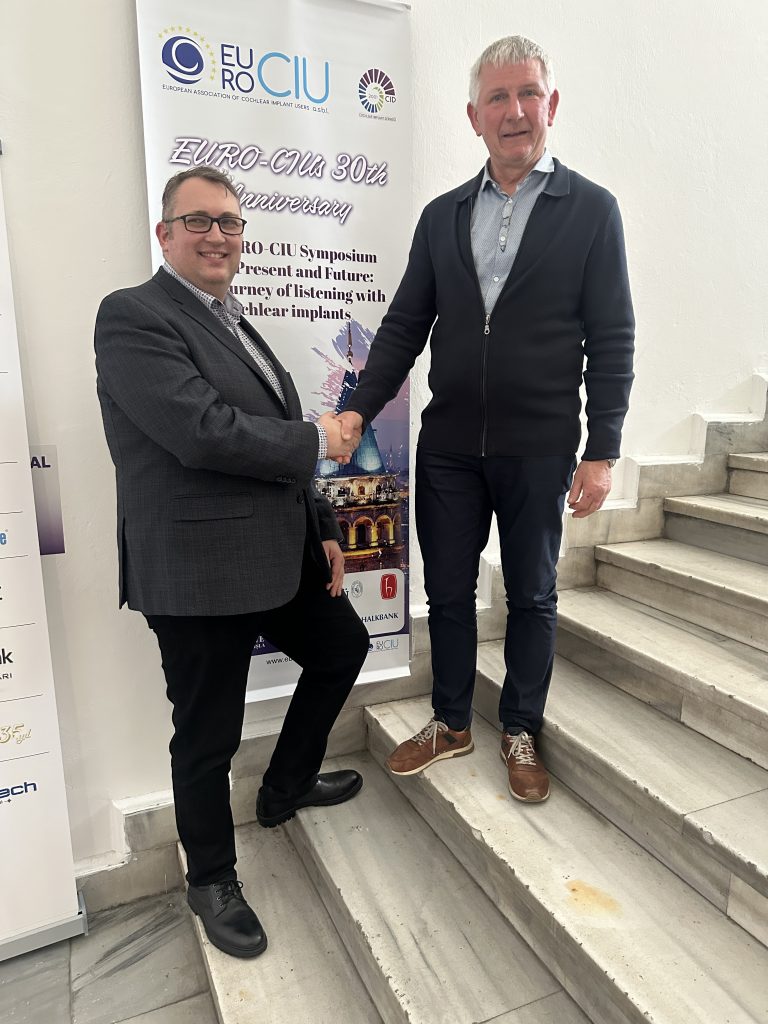
Leo De Raeve, Chair of CIICA and Scientific Advisor to EURO-CIU congratulates Tobias Fischer on becoming President.
CIICA stand was very popular with many visitors- and new members! Tobias and Deray visit the stand to look at the many advocacy resources available for you.
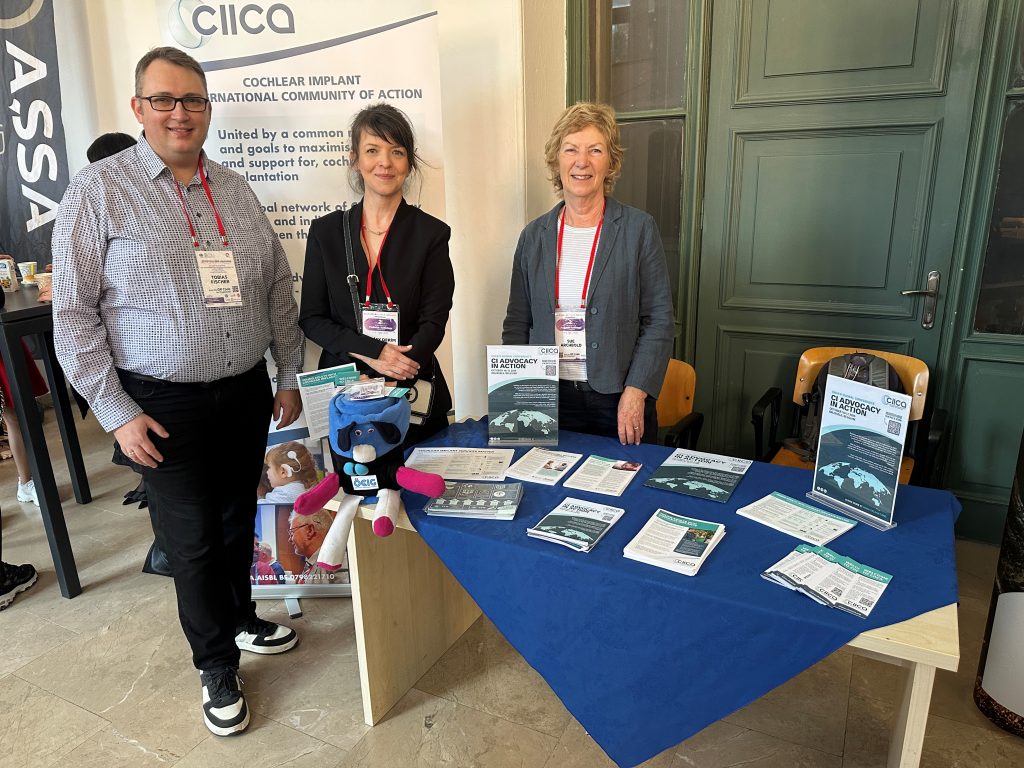
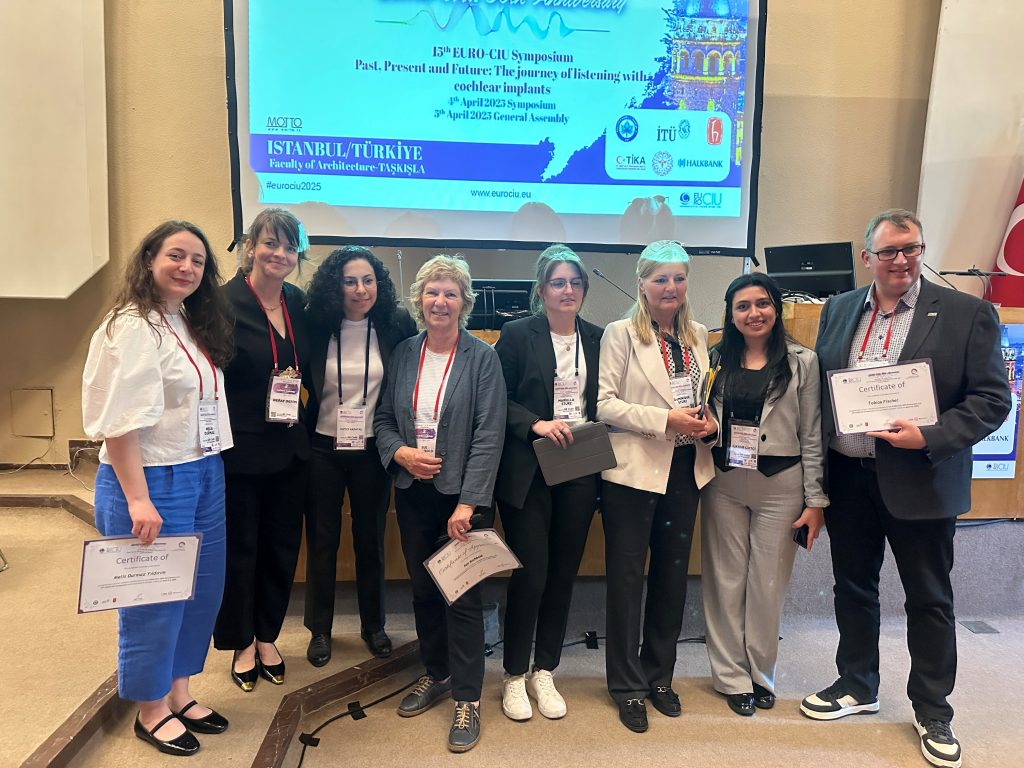
Sue Archbold led a group of young adults who talked about their experiences and the advice they would give to others. Tobias, Deray Derim, Melis Durmaz Yıldırım and Dominique Sturtz, with her daughter Mariella, gave great examples of the individual nature of each hearing journey and also the value of parents and families. Deray told us that our flaws do not matter!
